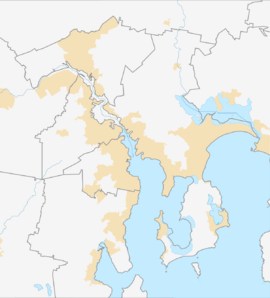Tolmans Hill, Tasmania facts for kids
Quick facts for kids Tolmans HillHobart, Tasmania |
|||||||||||||||
|---|---|---|---|---|---|---|---|---|---|---|---|---|---|---|---|
| Population | 568 (2016 census) | ||||||||||||||
| Postcode(s) | 7007 | ||||||||||||||
| LGA(s) | City of Hobart | ||||||||||||||
| State electorate(s) | Clark | ||||||||||||||
| Federal Division(s) | Clark | ||||||||||||||
|
|||||||||||||||
Tolmans Hill is a lovely suburb in Hobart, Tasmania, Australia. It's a special place because it's one of the newest areas built in Hobart. It's known for keeping its natural bushland look. In 2016, about 568 people lived here.
Contents
Discovering Tolmans Hill
Tolmans Hill is likely the last big new housing area built in Hobart. This means it's one of the final places where new homes can be built on undeveloped land within the city.
How Tolmans Hill Got Its Name
The suburb is named after a man named John Gibbs Tolman. He was a businessman from Hobart. In 1889, he bought the entire area that is now Tolmans Hill.
From Farmland to Homes
For many years, up until the 1980s, Tolmans Hill was used for grazing animals. This means it was open land where sheep or cattle could eat grass.
In 1991, the Hobart City Council decided to allow homes to be built there. They approved a plan for over 400 building lots. This plan also made sure to protect the natural bushland character of the area.
Protecting Nature in Tolmans Hill
When the Tolmans Hill development was first planned, there were some discussions. People wanted to make sure the natural environment was protected.
The development involved removing most plants that were not native to Australia. These included plants like Gorse and Cotoneaster. The goal was to keep as much of the native plants as possible. This was a challenge because the hill had been cleared of trees many times in the past. Also, large fires used to happen every few years.
To help protect the area, developers created a special plan called the Tolmans Hill Local Area Plan. This plan set rules for landowners. These rules help protect the environment and keep the area looking natural. For example, in some parts of the suburb, you cannot remove trees without special permission from the council.
 | James Van Der Zee |
 | Alma Thomas |
 | Ellis Wilson |
 | Margaret Taylor-Burroughs |


